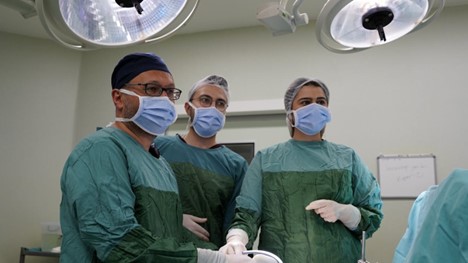Empowering Health Choices: Red Meat, Diabetes, and the Lean Solution
In the world of nutrition, the link between red meat consumption and various health concerns has been a topic of extensive research and debate. One of the noteworthy associations that have emerged from scientific studies is the connection between red meat and diabetes. However, a closer look reveals that not all cuts of red meat are created equal, and opting for lean choices may mitigate some of the risks associated with diabetes. In this blog post, we’ll explore the intricate relationship between red meat and diabetes and understand how choosing lean cuts can be a sensible step towards maintaining better health.
The Red Meat and Diabetes Connection:
Numerous studies have suggested a correlation between the consumption of red meat and an increased risk of developing type 2 diabetes. Red meat, particularly processed and unprocessed varieties, has been associated with:
- insulin resistance
- inflammation
- other factors that contribute to the development of diabetes
However, it’s essential to recognize that not all red meat is the same, and the devil may be in the details—more specifically, in the type and cut of meat consumed.
The Lean Advantage:
The distinction between fatty and lean cuts of red meat becomes crucial in understanding their varying impacts on health. While fatty cuts may contribute to insulin resistance and inflammation, lean cuts offer a different nutritional profile. Lean cuts of red meat provide essential nutrients like:
- protein
- iron
- zinc
without the excess saturated fat that can potentially lead to health issues.
Choosing lean cuts of red meat can be a sensible strategy for those who want to enjoy the benefits of red meat without significantly increasing their diabetes risk. Lean cuts are generally lower in saturated fat and calories, making them a healthier option for individuals concerned about their metabolic health.
Tips for Making Healthier Choices:
- Opt for Lean Cuts: When shopping for red meat, choose lean cuts such as sirloin, tenderloin, or loin chops. These cuts are typically lower in fat and can be a healthier option for those looking to manage their diabetes risk.
- Mind Your Portions: Moderation is key. Be mindful of portion sizes to avoid excessive calorie and fat intake. Incorporate red meat into a balanced diet that includes a variety of other nutrient-dense foods.
- Incorporate Variety: Red meat doesn’t have to be the sole source of protein in your diet. Consider incorporating a variety of protein sources, including:
- lean meats
- poultry
- fish
- legumes
- plant-based proteins
to diversify your nutrient intake.
Click here to see the full scientific article from Very Well Health.
Embracing lean cuts and incorporating a balanced, varied diet are crucial steps towards enjoying the nutritional benefits of red meat without compromising your metabolic health. As with any dietary choices, it’s advisable to consult with a healthcare professional or a registered dietitian to tailor recommendations based on individual health needs and goals.
Enhance your well-being with GlucoSupreme Herbal, a cutting-edge supplement offered by the renowned Asher Longevity Institute. This remarkable formula not only aids in maintaining optimal blood glucose levels but also proven invaluable for individuals seeking to shed excess weight and effectively manage their lipid levels.




